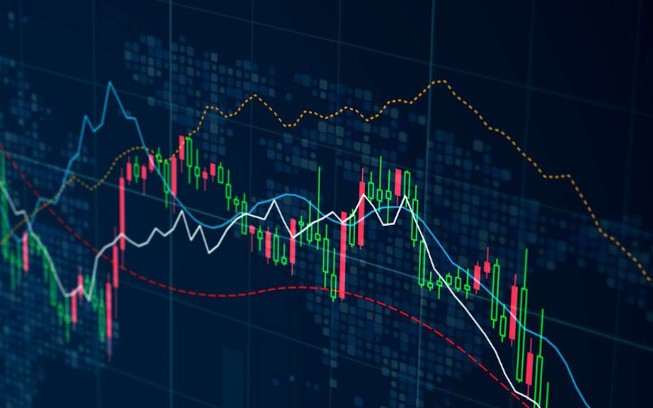Understanding Forex Trading Licenses What You Need to Know 1650027672

In the dynamic landscape of international finance, forex trading license trading-cambodia.com the Forex market stands as one of the largest and most accessible markets for traders worldwide. However, engaging in Forex trading requires a solid understanding of the regulatory environment and the essential licenses that govern it. This article will delve into the importance of Forex trading licenses, the types available, and the steps to obtain one, ensuring you are fully equipped for safe and compliant trading.
What is a Forex Trading License?
A Forex trading license is a legal authorization granted by a regulatory authority that allows individuals and companies to conduct Forex trading and brokerage services. The primary purpose of such licenses is to protect traders by ensuring that licensed entities adhere to specific standards and regulations that promote transparency, security, and fair trading practices.
Importance of Forex Trading Licenses
Forex trading licenses serve multiple essential functions. Firstly, they provide a regulated environment that helps protect traders from fraud and malpractice. Licensed brokers are required to maintain a certain level of capital reserves, segregate client funds, and operate in accordance with strict guidelines. Secondly, a license enhances a broker’s credibility and reputation, attracting more clients and ultimately contributing to its growth and sustainability. Furthermore, regulatory bodies work to resolve disputes between clients and brokers, offering an additional layer of security for traders.
Regulatory Bodies and Their Functions
In various jurisdictions around the world, several regulatory bodies oversee Forex trading activities and grant licenses to brokers. Some of the most recognized regulatory authorities include:
- Commodity Futures Trading Commission (CFTC) – USA: The CFTC regulates futures and options markets, including Forex trading, to protect market participants from fraud, manipulation, and abusive practices.
- Financial Conduct Authority (FCA) – UK: FCA is known for its rigorous standards, requiring brokers to maintain high levels of capital and provide robust protection for client funds.
- Australian Securities and Investments Commission (ASIC): ASIC regulates financial markets in Australia and is known for its emphasis on transparency and investor protection.
- Cyprus Securities and Exchange Commission (CySEC): Known for its straightforward licensing process, CySEC is a popular choice for many Forex brokers looking to operate in Europe.
- Monetary Authority of Singapore (MAS): MAS is the key financial regulator in Singapore, providing a strong regulatory framework for Forex trading.
Types of Forex Licenses

Forex licenses can vary significantly depending on the jurisdiction. The most common types include:
- Brokers License: This license is required for companies that offer Forex trading services to clients. It ensures that the broker adheres to regulatory standards and maintains ethical practices.
- Dealer License: This license is for firms that act as liquidity providers or market makers, enabling them to trade on their behalf and provide liquidity to the market.
- Professional Trading License: Some jurisdictions offer this type of license to individuals or firms that engage in high-volume trading or professional trading activities.
- Investment Advisor License: This license is required for firms that provide advisory services to clients regarding Forex trading and investment strategies.
How to Obtain a Forex Trading License
Obtaining a Forex trading license can be a complex and multifaceted process. Here are the general steps to follow:
- Choose the Jurisdiction: Decide where you want to obtain your Forex license based on regulatory requirements, tax implications, and your target market.
- Set Up a Legal Entity: Establish a legal entity (company or corporation) in the chosen jurisdiction with a well-defined business structure.
- Prepare Documentation: Gather and prepare all necessary documents, including proof of identity, financial statements, and business plans, as required by the regulatory authority.
- Submit an Application: Complete and submit the application along with the required fees. This process often involves a thorough review by the regulatory body.
- Compliance with Requirements: Once approved, ensure ongoing compliance with all regulatory requirements, including regular audits and reporting.
Risks of Trading with Unlicensed Brokers
Trading with unlicensed brokers poses significant risks. These may include:
- Fraud and Scams: Unregulated brokers may engage in fraudulent activities, including misappropriation of funds, which can lead to significant financial losses for traders.
- Lack of Consumer Protection: Unlicensed brokers do not have to adhere to regulatory guidelines, leaving traders without support in case of disputes or issues.
- Inadequate Security: Unregulated firms may not offer sufficient security measures for client funds, increasing the risk of loss.
- Limited Recourse: If traders have issues with unlicensed brokers, they often have no legal recourse or protection to recover their funds.
Conclusion
In conclusion, obtaining a Forex trading license is a critical step for anyone looking to engage in Forex trading, whether as a broker or trader. By understanding the importance of regulatory compliance and selecting the right licensing jurisdiction, individuals can significantly reduce risks and enhance security in their trading activities. Always remember to conduct thorough research and due diligence when choosing your trading partners, as proper licensing is a key indicator of a trustworthy Forex broker.
